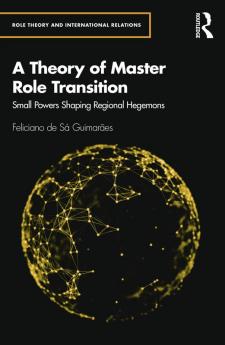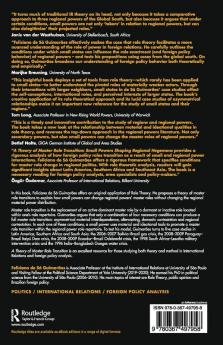English
Paperback
₹3616
₹4745
23.79% OFF
(All inclusive*)
Delivery Options
Please enter pincode to check delivery time.
*COD & Shipping Charges may apply on certain items.
Review final details at checkout.
Looking to place a bulk order? SUBMIT DETAILS
About The Book
Description
Author
Shoutouts
<p>In this book Feliciano de Sá Guimarães offers an original application of Role Theory. He proposes a theory of master role transitions to explain how small powers can change regional powers’ master roles without changing the regional material power distribution.<br><br>Master role transition is the replacement of an active dominant master role by a dormant or inactive role located within one’s role repertoire. Guimarães argues that only a combination of four necessary conditions can produce a full master role transition: asymmetrical material interdependence altercasting domestic contestation and regional contestation. In each one of these conditions a small power uses material and ideational tools to promote a master role transition within the regional power role repertoire. To test his model Guimarães turns to five case studies in Latin America Southern Africa and South Asia: the 2006–2007 Bolivia–Brazil gas crisis the 2008–2009 Paraguay–Brazil Itaipú Dam crisis the 2008–2009 Ecuador–Brazil Odebrecht crisis the 1998 South Africa–Lesotho military intervention crisis and the 1996India–Bangladesh Ganges water crisis.<br><br><i>A Theory of Master Role Transition </i>is an excellent resource for those studying both theory and method in International Relations and foreign policy analysis.</p>
Delivery Options
Please enter pincode to check delivery time.
*COD & Shipping Charges may apply on certain items.
Review final details at checkout.
Details
ISBN 13
9780367497958
Publication Date
-01-02-2022
Pages
-132
Weight
-190 grams
Dimensions
-152x229x7.38 mm
Imprint
-Taylor & Francis

























